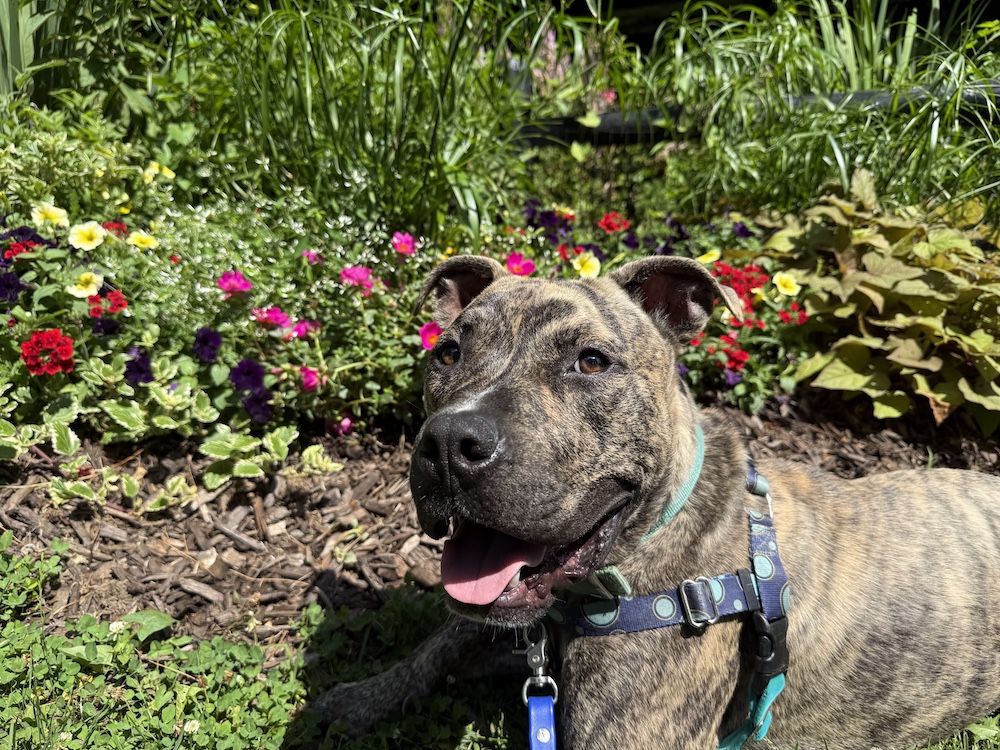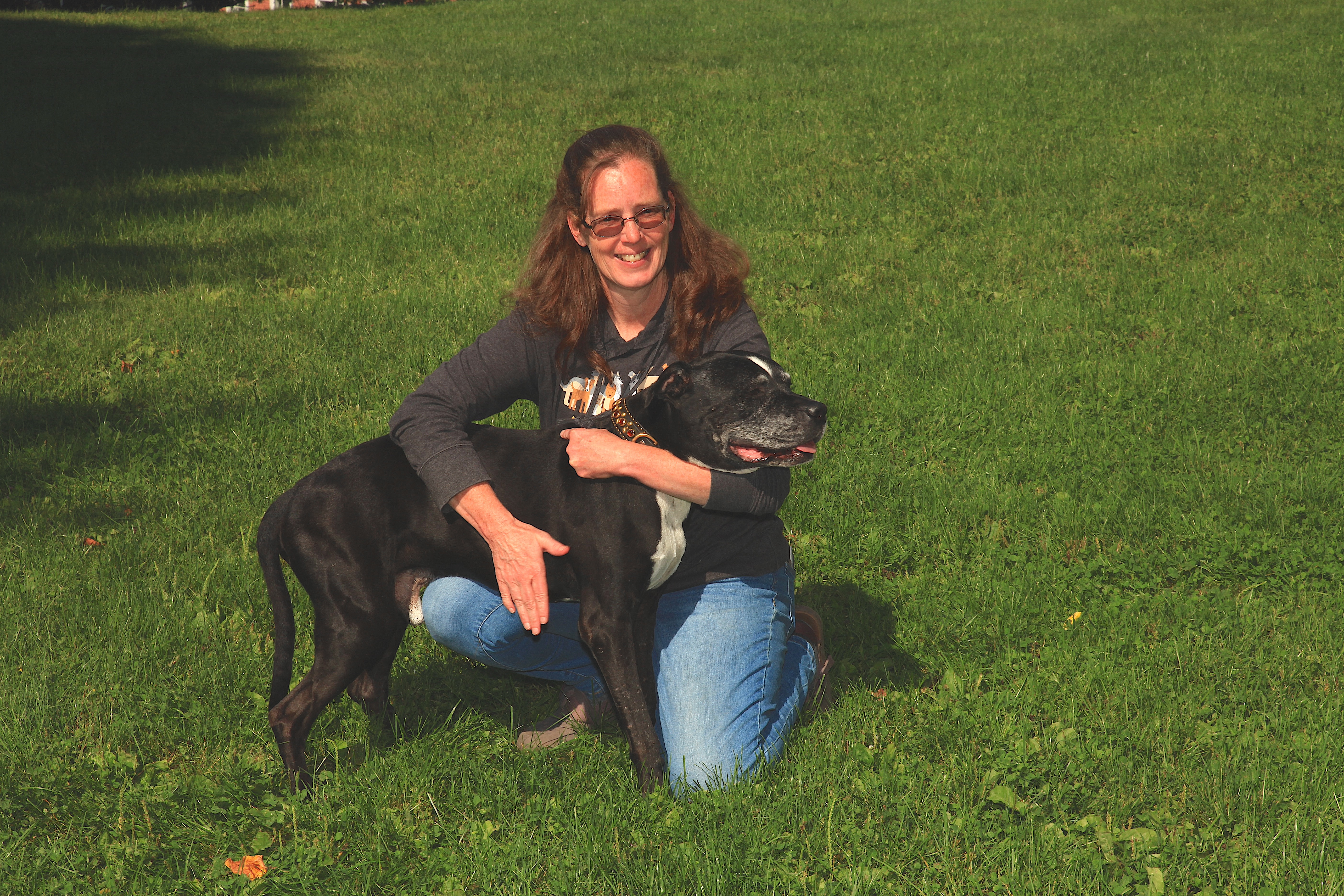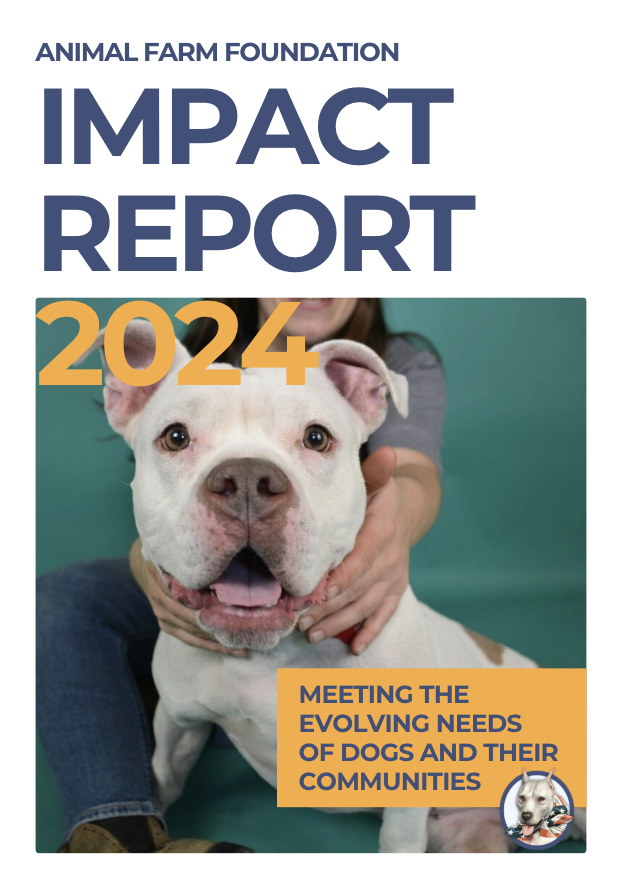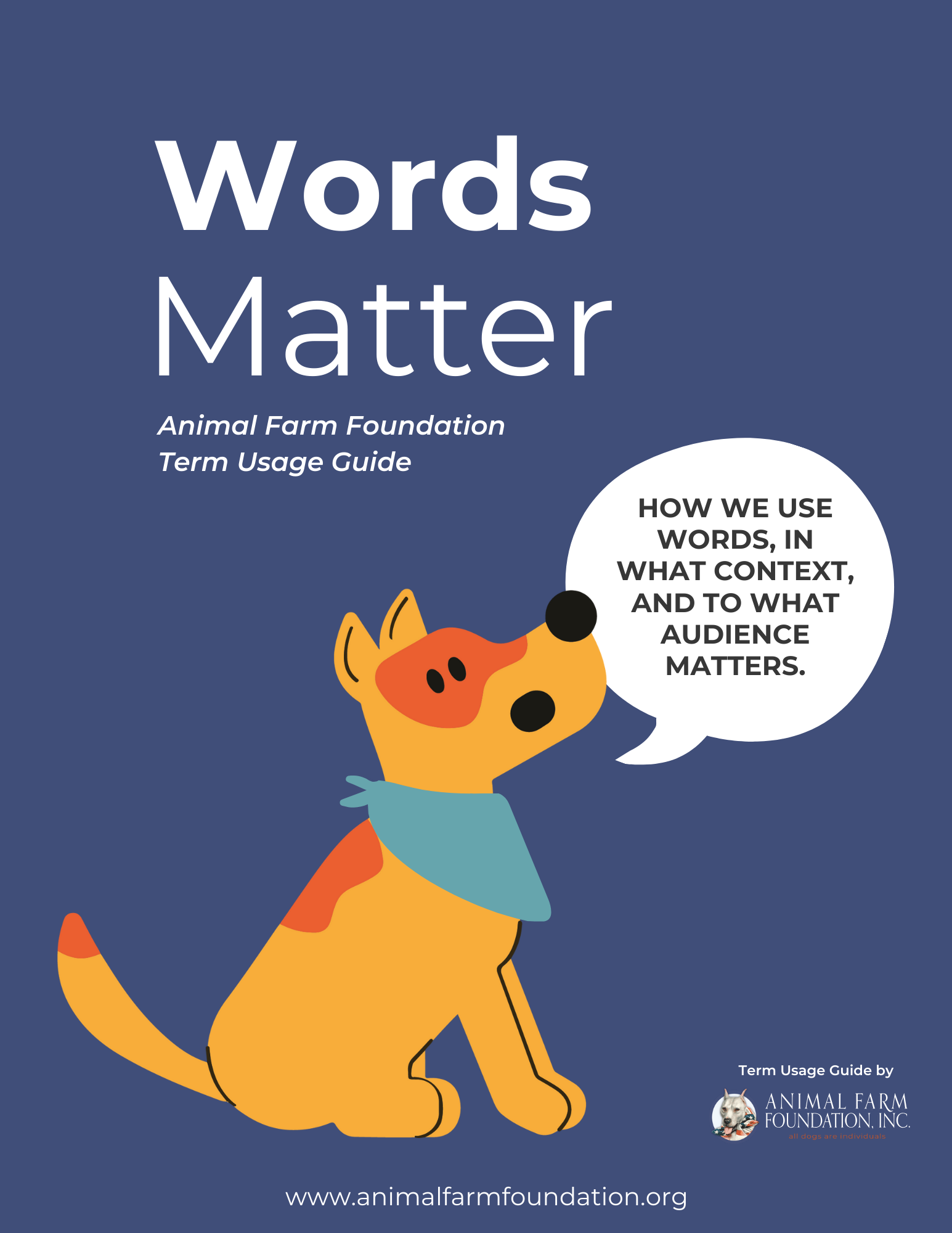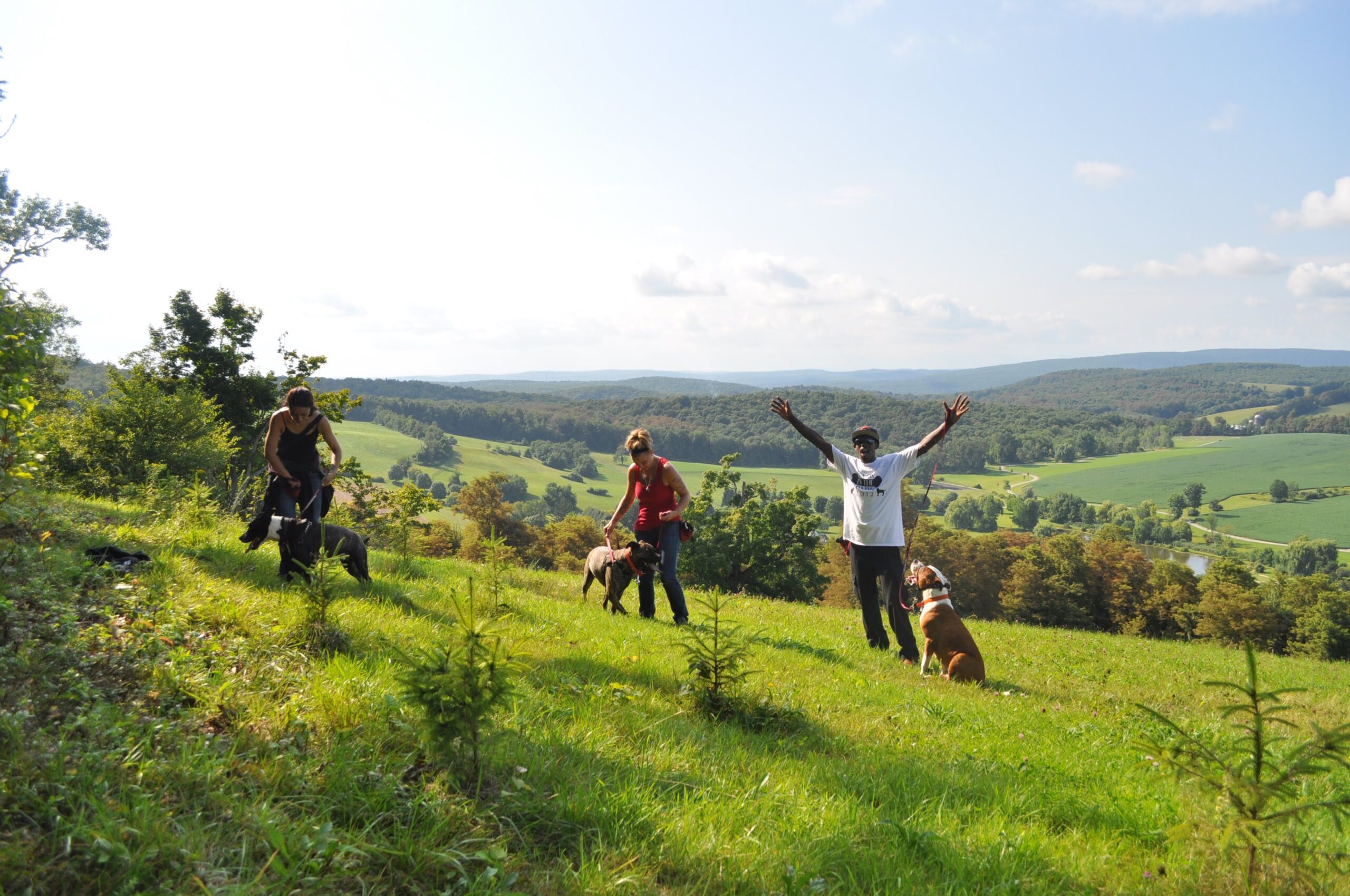Shelters are in the business of sending pets home. If our goal is to provide shelter dogs with the best care during their stays, save more lives, and make better matches for adopters, we have to focus on their individual pet qualities first and foremost.
That’s why we were discouraged to read the latest blog from the ASPCA, directed at shelter workers and adoption counselors, which advised them to, “…make clear the breed traits of the dogs when we can identify the breed or breed mix.”, suggesting that knowing a breed trait would help shelters predict which dogs were appropriate for play groups and various types of enrichment.
In response, we wanted to remind shelter staff why it’s crucial to get to know dogs as individuals first, as well as the overwhelming good news about playgroups for dogs of all kinds.
Successful adoption programs recognize that all dogs are, first and foremost, individuals. Every dog is an individual with a distinct set of needs and behaviors that are determined by a wide variety of factors, including: genetics, breeding, socialization, training, management, and past experience and current environment. The only way we can accurately determine what a dog needs are is to look at the individual dog in front us for the answers.
We owe it to all shelter dogs to see them for who they really are, free from assumptions that are based on a known pedigree, a breed label guess, or physical appearance. Read more here.
This does not mean breed traits don’t exist or that they have no place in adoption counseling. Breed traits most certainly exist, but how they present themselves in dogs, particularly in mixed breed dogs of unknown origins, varies tremendously. Therefore, a guess at how a breed trait may or may not manifest itself in a dog is not nearly as reliable as the information shelters can gather by observing the dogs in their care.
No matter what a dog’s breed or mix may be, we should never allow our speculation, biases, or guess-work to stand in the way of providing the best care, socialization, and adoption matches possible. When we give equal or more weight to breed traits (particularly when it pertains to mixed breed dogs), rather than focusing on what we’ve observed about a dog’s individual needs, we are potentially denying them a range of positive experiences.

How does seeing dogs as individuals FIRST and foremost make a life saving difference? Here’s one of many examples from the shelters we work with around the country:
After attending a recent play group workshop, run by Aimee Sadler, we heard from the Canine Services Manager at the Norfolk SPCA, who wrote:
“It was an absolutely life changing experience and we have already begun building playgroups here at the Norfolk SPCA. One of the most valuable pieces of this workshop was the focus on the individual dog. There wasn’t any focus on breed. This really hit me. I stress daily to my staff that we must treat each dog as an individual…After participating in Aimee’s workshop, I realized that I had been making so many assumptions based off of breed. Until now.
Now, we will be truly focusing on each individual dog. I look back at all of the dogs that could have benefited from these playgroups. There were many dogs that weren’t allowed to go home with other dogs because it was too much of a “risk”. It brings tears to my eyes to think of all of the dogs that have been held back. But in the spirit of the dog, we are moving forward!”

This forward thinking approach echoes what Alexandra Horowitz, a researcher of dog behavior and cognition and author of “Inside of a Dog: What Dogs See, Smell, and Know” recently wrote for the NY Times:
“…breed standards include personality descriptions. Unfortunately, personality is not genetically determined: just as a person’s personality derives from more than her genome, a dog is not merchandise whose behavior (outside of a few hard-wired ones, like pointing) can be predicted ahead of time.
While many owners may see breed-typical personalities in their dogs (we humans do tend to spot just the evidence which supports our theories), there is simply no guarantee that a dog will behave just so. Witness the cases of cloned — genetically identical — pets who have, to their owners’ great surprise, quite different personalities.
Since the vast majority of dog owners are not showing their dogs, but adding them to their families, the alleged predictability of personality is problematic. When a dog does not behave in accordance with her “billing,” owners call this a “behavior problem” — the single greatest reason for relinquishment of a dog to a shelter. Thus, inadvertently, breed standards lead potential adopters to treat them more like products with reliable features. Dogs are individuals, and should be treated thusly.”
Read more here.
If there’s any doubt that recognizing dogs as individuals first is saving lives and increasing adoptions, take a look at what’s happening at Chicago Animal Care and Control (CACC), an open admission city shelter with a large number of pure breed and mixed breed dogs labeled “pit bull.”
Last year Aimee Sadler, creator of the Success Through Socialization program, provided a multi-day hands on lesson for volunteers and staff members to learn how to run play groups. We followed up with Cynthia Bathurst, the Executive Director of Safe Humane Chicago, to find out how the Court Case Dogs (a Safe Humane program that supports dogs who have been relinquished by defendant owners charged with animal abuse or neglect and are housed at CACC), are doing and how the play groups at CACC have impacted their lives.
Here’s what Cynthia told us in a nutshell: play groups are saving lives.
Cynthia says, “All dogs who are social or comfortable with other dogs, or with particular dogs (depending on play styles and compatible personalities), can participate in play groups. It depends on the individual dogs. Any restrictions are set by the play group volunteers themselves and are the result of individual observations or individual limitations, such as a dog’s medical condition or play style or lack of social skills.”
They do not use breed or breed mix to determine which dogs are allowed to participate in play groups.
Read the full interview here.
The fact is that we’ve all been relying on breed traits – accurate or not – for too long now. It’s a step backwards to advise shelters to use physical appearance as an equally reliable tool for evaluating a dog or to determine their suitability for various kinds of socializing and enrichment. This old-fashioned, fear-based, reliance on possible breed traits in sheltered dogs has denied countless dogs the chance to socialize in stress-reducing play groups, to go home with adopters who have other pets, and to discover the pet qualities that will truly make the best match for an adopter. It’s time to move forward in our approach to adoptions and enrichment by focusing on dogs as individuals FIRST.




